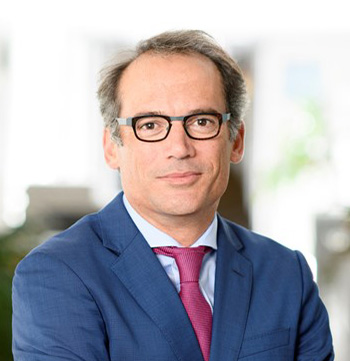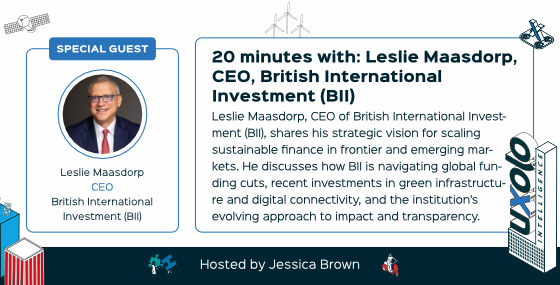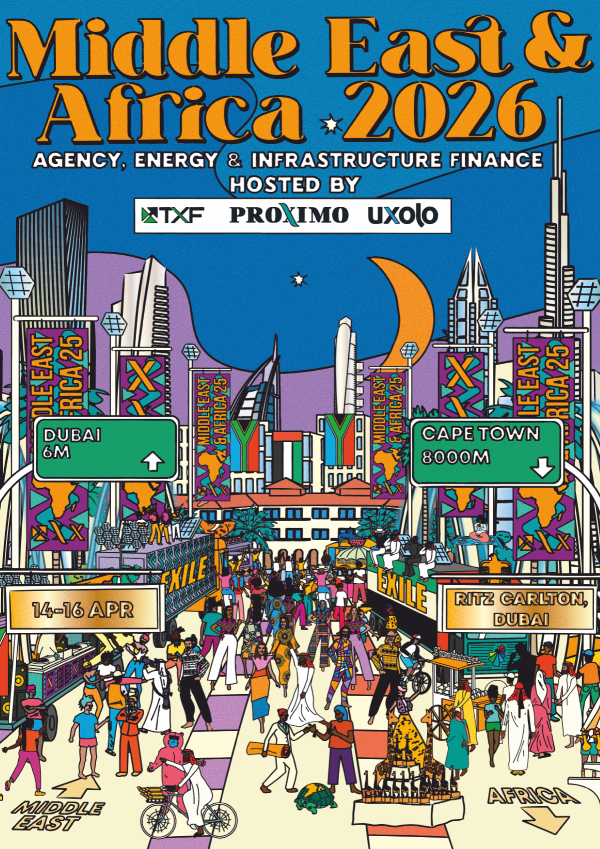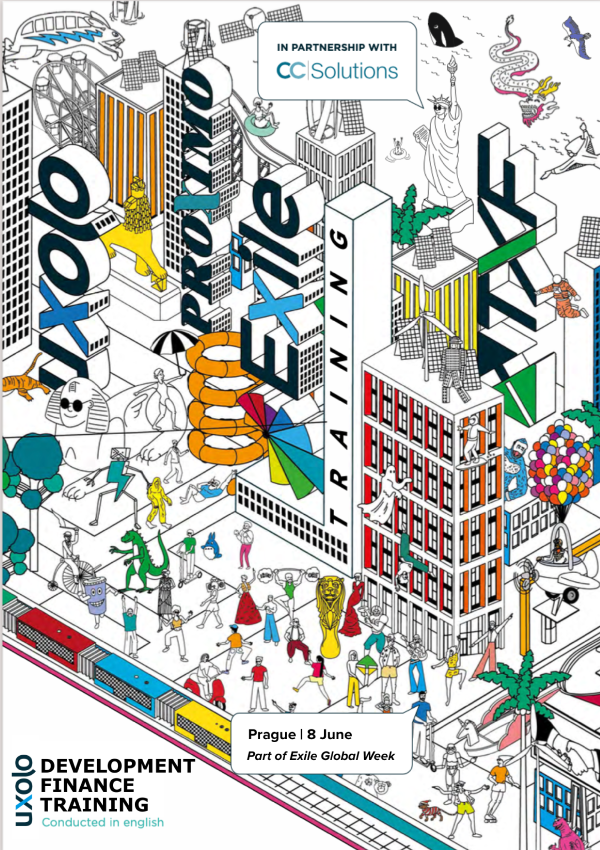Unlocking more productivity: IFC redefines its Latin infra focus
There was a time when the IFC was all about infrastructure – especially in Latin America. Physical construction works that boosted GDP in the short-term and upgraded potential trend GDP in the medium-to-long term. That’s still very much a part of the IFC’s Latin America agenda – but the agenda has broadened says IFC’s new vice president for Latin America and the Caribbean, Alfonso Garcia Mora.

IFC’s new vice president for Latin America and the Caribbean, Alfonso Garcia Mora, was kind enough to take time out on his first trip to Sao Paulo to sit down with Uxolo and talk about some of the IFC’s new, broader infrastructure strategy in Latin America and the Caribbean (LAC) – the region he describes as “the most important for the bank.”
He spoke of pride in helping Brazil develop a world leading PPP model and of the need to build “up-stream capacity” to help the region develop more bankable projects. But there was also an insiders view on the way the IFC is evolving in the region – and not just its climate focus (standard fare now for all development banks). What stood out most was Garcia Mora’s insistence that the biggest challenge to the region is lack of productivity and that part of the prescribed solution is digitization.
“Not every village can have a doctor, but with e-health solutions, not every village needs one,” he says half way through an almost-evangelical discourse about the potential for digitisation. “What’s the one thing that links inclusion and poverty reduction? It’s enabling digitization and connectivity. One of the big differences between Asia and Latin America is that there is a huge space linked to digitization that hasn’t been developed. And the vast territory of countries in LAC, such as Brazil, means you cannot build out physically the basic infrastructure that you need in the country because that will take you forever.”
“And it’s not just down to a lack of backbone infrastructure – it’s also having the digital means to deliver services around the region,” he continues. “E-health, e-education, e-commerce – these are tools to close the gaps in services in countries in this region that digitization can address,” he says. “It’s not just fintech that realises the potential of digital to enable populations to access critical services.”
Though fintechs are also important: “The use of micro insurance has been hugely transformative for many Asian markets,” says Garcia Mora. “You can secure coverage for crops on your iPhone without the need to travel big distances.”

Alfonso Garcia Mora
Digitization helps on the IFC’s gender goals, too: “I read a super-interesting study of how digitization reduces crime and violence against women,” he says. “Women do not need to travel to access services – they can work from home, they can use banking services from safe places.”
But for Garcia Mora, digitization and poor infrastructure are not the only constraints on productivity. “I would say that one thing that is even more important to poor productivity than a lack of infrastructure is a lack of competition,” he adds. “There is a lack of competition in Latin America in many sectors – sectors that are critical and that were either privatised without the needed market framework to ensure that they led to a competitive market,” says Garcia Mora. “Or other sectors where the state is still very present and crowding out competition from potential private sources.”
He says this is verging towards being an intractable in many instances, because the lack of competitive environment necessarily prevents new investors entering these markets to try to spur competition. “You need strong policy decisions to move in the right direction [for competition].” While policy decisions are a matter for national governments, the IFC itself tries to promote competition: “What we try to do is help medium-sized companies – that helps to create competition.”
Mobilisation
This brings Garcia Mora to mobilisation. After the IFC was recapitalised with $5.5 billion in fresh equity in 2020, the bank brought in fresh emphasis on leveraging the organisation’s capital to bring in private sector capital alongside its own financing.
In Latin America the bank is running ahead of IFC’s rule of thumb of doubling its own capital by matching each of its dollar with private sector investment. Garcia Mora says that in 2021 the IFC ‘mobilised’ just over $7 billion in investments to LAC - $3.2 billion of the IFC’s own capital and around another $4 billion of ‘mobilized’ funding. Of that $7 billion, 50% is being directed to climate-related finance (more than the IFC’s mandated target of 35% of all new finance being related to climate mitigation or reduction).
This multiplier effect is achieved through the bank’s focus on “upstream” project development and is founded on designing deals that bring in private investment and/or other DFIs or public funds.
“The catalyser, or multiplier, effect that the IFC plays is critical,” says Garcia Mora. “All the investment we do prepares the ground for our clients to also receive international financing. If we give a company the IFC stamp of approval then it helps to mobilize other sources of capital that might not have the capability to run their own analysis and get comfortable with the underlying [credit risk and /or project risk]. And we invest alongside because it’s also a powerful message to show that we also have some skin in the game.”
Garcia Mora doesn’t ignore the importance that the impact of national regulations has on IFC’s ability to mobilise private sector finance into the region. But he believes the IFC can also have a positive impact on governments throughout the region.
“We are part of the World Bank Group and we coordinate closely with the World Bank to try to support it when it comes to advancing public policy,” he says. “Whenever the World Bank lends to governments we always try to bring alongside the private sector perspective about how it is being impacted by regulation. Because that’s the other side of the coin: you need to introduce smart regulation that has a positive impact on the private sector. If you look at fiscal policy in the region, it needs to change in the coming years to avoid distortions.”
Garcia Mora says there are many such distortions created by governments targeting the price of goods and services to subsidise public consumption. However, he points out that such policies backfire – making demand insensitive to real prices and exacerbating the cost of the subsidies. Rather, he says, fiscal support should be more targeted directly to those that need help – but not delivered through distorting the market pricing mechanism. As well as blowing out the cost of subsidies, distorting pricing discourages long-term FDI.
Still appetite for traditional infrastructure
With Brazil – the IFC’s second largest investment market after India – having a new government, and a degree of uncertainty on the details of the direction the new Lula administration will take, will international investors be more reticent to commit to projects in the country? “No,” says Garcia Mora. “I would say that, independent of whoever is in government, there are structural issues that create certainty for investors.”
A good example of this is Brazil’s PPP regulatory regime, which Garcia Mora says is world class – and is helping to bring in billions of international capital into the country through privatisations and concessions. More recently, the Brazilian government has legislated sanitation reform and the IFC has been quick to get involved in financing some innovative deals in the sector. Garcia Mora points to its $150 million ‘blue loan’ to Sabesp (Sao Paulo state’s water authority) that focuses on investments that improve water quality and expand sewage collection and treatment in the poorest neighbourhoods of Sao Paulo, as part of the Pinheiros River Clean Up Program.
So there’s still appetite within the IFC for traditional infrastructure projects? “Absolutely,” says Garcia Mora. “The new sanitation legislation has changed the rules of the game, opening doors to the private sector. We’re working with those companies to attract private funds to these projects. This is really important for us in Brazil.”





